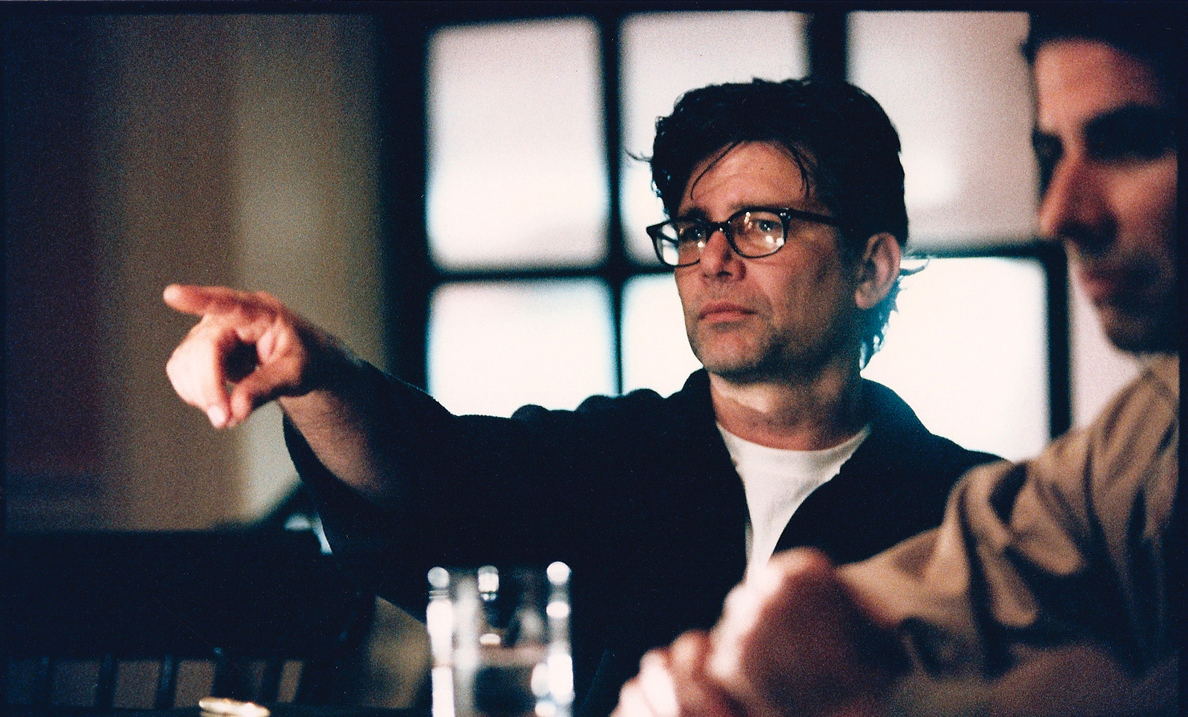It’s not like screenwriter Steven Zaillian hasn’t plumbed the darkness in the human heart before he adapted David Fincher’s The Girl with the Dragon Tattoo, based on the first novel in Steig Larsson’s worldwide bestselling trilogy, Millennium. Zaillian’s sublime script for Schindler’s List, based on Thomas Keneally’s book, found hope in the bleakest of all human experiences, and won an Academy Award. And, over the last quarter century, Zaillian has been responsible for some of the most heart wrenching moments in cinema, most often adaptations of literary works like 1985’s The Falcon and the Snowman all the way up to this year’s Moneyball (written in conjunction with Aaron Sorkin). Novels and non-fiction have been fertile ground for Zaillian, who has also left his computer to direct projects he’s written, including Searching for Bobby Fisher, A Civil Action (which received a Writers Guild Award nomination), and All the King’s Men. Zaillian, who was also an executive producer on The Girl with the Dragon Tattoo, has awards from the WGA, BAFTA, and the Humanitas Prize, to sit alongside his Oscar. Chris Wolski caught up with Hollywood’s most respected scribe via email to talk about punk hackers, political evildoers, and finding a kindred spirit in Conrad Hall, ASC.
ICG: You’ve written many scripts from novels and non-fiction. How do you approach the adaptation process? Steven Zaillian: The approach varies depending on what’s there to begin with. Sometimes there’s no obvious narrative – the book is a collection of essays or articles, which was the case for Searching for Bobby Fischer, or case studies like Awakenings, or the history and analysis of an idea such as the recently released Moneyball. The approach in non-fiction adaptations like those is to create a narrative story and tell it through certain characters. In the case of a novel, we understand what’s going on with the characters – their inner lives, their thoughts – in the prose. This isn’t something available to the screenwriter, except perhaps in the use of voice-over. If there’s no voice-over, which in most of my scripts there isn’t, I have to convey what a character is thinking or feeling in actions and behavior. Not even dialog is going to help me, since people seldom reveal what they’re really thinking and feeling with words. The good news is, because of the visual nature of film, we get to see, rather than hear, what a character is about.
Why have you been attracted to so many true stories? Perhaps because I grew up with news always in the house; my father being a journalist. Since true stories are reported in articles or books, that’s where I first hear about them. The challenge is constructing a dramatic film narrative that doesn’t stray from the facts in significant ways. I actually don’t mind the messiness of how something happened or a person’s complicated motivation or behavior.
How tough was it to adapt an international bestseller that had already been a hit movie? The Girl with the Dragon Tattoo had a lot going for it: a good mystery, good main characters, a good setting. One of the challenges, of course, was how to cope with its length. Another was how to deal with backstories that a novel can convey in ways a film can’t. Another was that many of the clues discovered by the characters occur when they’re alone – they see them – they don’t discuss them. These important clues have to be communicated to the audience completely visually. And, in this particular case, there was a sort of low-grade anxiety about not disappointing readers of a book that’s so well known and liked.
Jeff Cronenweth said that after seeing the Swedish version of the film, he understood why David Fincher was eager to revisit the material. Did you see it before writing? I was interested in the story, not remaking a film, so I chose not to see the Swedish film. I’ve yet to see it.
Did you go to Sweden at all while you were writing the script? I went to Sweden for about two weeks, early on in the shooting, after the script was done. I was there primarily to hear what the actors felt about certain key scenes, to sit in on rehearsals of these scenes, and, in some cases, revise them. I also got a chance to see some of the places where the story would take place and satisfy my curiosity that what I’d imagined would work there.
What are the criteria that you use for choosing a project? The first question I ask is, “does it interest me enough to stay with it for the months or years it will take to finish it?” The next question is, “do I feel I have enough to contribute to it; do I understand what it’s really about?” The last question I ask is, “who’s directing it?” And that one has become more and more important to me over the years, because I believe you can see, or at least sense on the screen, whether or not there was a good working relationship between the writer and director. The best experiences I’ve had have been with the best directors, and David Fincher is certainly one of them.
You would certainly know, of course. Fincher, Spielberg, Scorsese, Ridley Scott: what is it like working with directors who have such a strong personal and visual stamp? I much prefer working with accomplished directors with strong visual styles. It doesn’t affect the way I approach or write a script, but it gives me a great sense of relief knowing it’s in good hands. I’m always excited to see how they’re going to interpret it visually, and have never been disappointed. I’ve also found that these directors are the easiest to work with. I think this is because they’re secure about what they do, confident of themselves and the script. And it’s always best for both of us if I address any concerns they have about the story and screenplay before production, not during.
The atmosphere on this latest Fincher film was described to me as “precise” and “collaborative” Was that your experience in the writing process? David is very precise. So am I. In terms of the script, we both cared a great deal that everything in the story could happen and everyone could behave in the way described. We went over every action and line until we were both satisfied. It was a true and very good collaboration. David then spent several months shooting the film the way he does, which is to approach each scene with a visual idea that’s interesting, strong, precise, and “him.”
How does being a screenwriter influence you when you’re directing? I can’t describe what I can’t see, so in that respect I’ve already “directed” the film in the writing, which is why I’ve yet to direct anything I haven’t written. Directing, for me, is basically trying to recreate what I’ve already seen.
As a director, what has your relationship been with the DPs you’ve worked with? To say that working with Conrad Hall was a great experience is an understatement. I know how lucky I was to have had that opportunity. He was very special, and so was our working relationship, which was certainly a partnership. He was not someone who liked predetermination. Having a storyboard in hand wasn’t something that would please him. He loved discovering things – even a film’s overall style – as he went along. He often talked about the magic of “happy accidents,” and we had many of those. I’m the same way. I always have a plan – both overall and scene-to-scene – but it’s more of a backup plan, because more often than not, I would discover exactly how a scene should be shot after its rehearsal in the morning. Of course, Conrad was so accomplished he could get away with such creative improvisation. Not everyone can.
Can you give us an example? A few weeks into Searching for Bobby Fischer we had to shoot a scene in a large auditorium. Presuming it would be covered somewhat traditionally, Conrad spent the morning lighting what would be the master. It took hours, and, as I waited out in the hallway, crew members would come and go out the door allowing me a slight glimpse of all the work going on inside. Conrad eventually came out and said, “Okay, we’re ready.” I said, “You’re going to hate me for this since you just spent three hours lighting it, but we don’t need to shoot in there, we can do the whole scene in one shot from right here, seeing only a sliver of the action in the auditorium as the boy and his father come out that door. That and the sound of what’s going on in there will tell the story.” He stared at me, and after a few moments smiled and said, “Finally, you’re thinking like a real director.”
When you hear the name Steve Zaillian, most people will think screenwriter first. But you’ve also got editing, producing, and directing credits. How have these other areas influenced your writing? Doing these other jobs has had less effect than my actual writing, which always comes first because I learn things with each new script. The main thing being that if I’m unhappy with a scene on the page, I’m not going to be any happier with it a year later on the screen.
Interview by Chris Wolski. Photo courtesy of Steven Zaillian.

